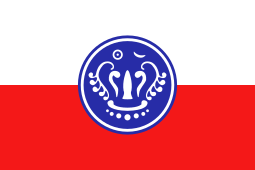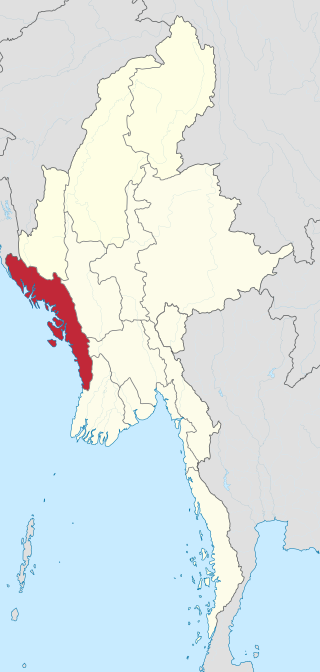
Rakhine State, formerly known as Arakan State, is a state in Myanmar (Burma). Situated on the western coast, it is bordered by Chin State to the north, Magway Region, Bago Region and Ayeyarwady Region to the east, the Bay of Bengal to the west and the Chittagong Division of Bangladesh to the northwest. It is located approximately between latitudes 17°30' north and 21°30' north and longitudes 92°10' east and 94°50' east. The Arakan Mountains or Rakhine Yoma separated Rakhine State from central Burma from North to South. Off the coast of Rakhine State there are some fairly large islands such as Ramree, Cheduba and Myingun. Rakhine State has an area of 36,762 square kilometres (14,194 sq mi) and its capital is Sittwe.

The Rohingya people are a stateless Indo-Aryan ethnic group who predominantly follow Islam and reside in Rakhine State, Myanmar. Before the Rohingya genocide in 2017, when over 740,000 fled to Bangladesh, an estimated 1.4 million Rohingya lived in Myanmar. Described by journalists and news outlets as one of the most persecuted minorities in the world, the Rohingya are denied citizenship under the 1982 Myanmar nationality law. There are also restrictions on their freedom of movement, access to state education and civil service jobs. The legal conditions faced by the Rohingya in Myanmar have been compared to apartheid by some academics, analysts and political figures, including Nobel laureate Bishop Desmond Tutu, a South African anti-apartheid activist. The most recent mass displacement of Rohingya in 2017 led the International Criminal Court to investigate crimes against humanity, and the International Court of Justice to investigate genocide.

Hinduism is the Fourth-largest religion in Myanmar, being practised by 1.7% of the population of Myanmar. Hinduism is practised by about 890,000 people in Myanmar, and has been influenced by elements of Buddhism, with many Hindu temples in Myanmar housing statues of the Buddha. There are also a large population of Hindus in which the Myanmar Tamils and minority Bengali Hindus having the biggest population share.
The Burmee Colony is one of the neighbourhoods of Landhi Subdivisions in Karachi, Sindh, Pakistan.

The Rakhine or Arakanese are a Southeast Asian ethnic group in Myanmar (Burma) forming the majority along the coastal region of present-day Rakhine State, although Rakhine communities also exist throughout the country, particularly in the Ayeyarwady and Yangon Regions. They constitute approximately 4.61% or more of Myanmar's total population. Rakhine communities exist in Bangladesh's Chittagong Hill Tracts and in India, where they are known as the Marma and Mog peoples respectively.

Insurgencies have been ongoing in Myanmar since 1948, when the country, then known as Burma, gained independence from the United Kingdom. It has largely been an ethnic conflict, with ethnic armed groups fighting Myanmar's armed forces, the Tatmadaw, for self-determination. Despite numerous ceasefires and the creation of autonomous self-administered zones in 2008, armed groups continue to call for independence, increased autonomy, or federalisation. It is the world's longest ongoing civil war, spanning almost eight decades.
Myanmar (Burma) is a Buddhist majority country with a significant minority of Christians and other groups residing in the country.
The 2012 Rakhine State riots were a series of conflicts primarily between ethnic Rakhine Buddhists and Rohingya Muslims in northern Rakhine State, Myanmar, though by October Muslims of all ethnicities had begun to be targeted. The riots started came after weeks of sectarian disputes including a gang rape and murder of a Rakhine woman which police allege was committed by three Rohingya Muslims. On 8 June 2012, Rohingyas started to protest from Friday's prayers in Maungdaw township. More than a dozen residents were killed after police started firing. A state of emergency was declared in Rakhine, allowing the military to participate in administration of the region. As of 22 August 2012, officially there were 88 casualties: 57 Muslims and 31 Buddhists. An estimated 90,000 people were displaced by the violence. Around 2,528 houses were burned; of those, 1,336 belonged to Rohingyas and 1,192 belonged to Rakhines.

The Rohingya conflict is an ongoing conflict in the northern part of Myanmar's Rakhine State, characterised by sectarian violence between the Rohingya Muslim and Rakhine Buddhist communities, a military crackdown on Rohingya civilians by Myanmar's security forces, and militant attacks by Rohingya insurgents in Buthidaung, Maungdaw, and Rathedaung Townships, which border Bangladesh.
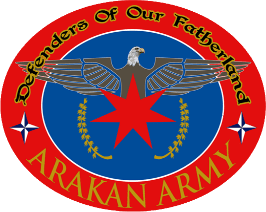
The Arakan Army, sometimes referred to as the Arakha Army, is an ethno-nationalist armed organisation based in Rakhine State (Arakan). Founded on 10 April 2009, the AA is the military wing of the United League of Arakan (ULA). It is currently led by Commander-in-Chief Major General Twan Mrat Naing and vice deputy commander-in-chief Brigadier General Nyo Twan Awng. The Arakan Army states that the objective of its armed revolution is to restore the sovereignty of the Arakan people. In a February 2024 interview, Twan Mrat Naing claimed that the AA had grown to at least 38,000 troops. Anthony Davis, an expert of military and security, rejected this claim and estimated that it has at least 15,000 troops in Chin State and Rakhine State, in addition to around 1500 in Kachin State and Shan State. In the early 2010s, the Arakan Army fought alongside the Kachin Independence Army (KIA) against the Tatmadaw in the Kachin conflict. Following the 2016 outbreak of conflict in Rakhine state, AA became more heavily involved in the Arakan region. In 2019, AA launched attacks on state security forces and the Myanmar Army responded, heightening clashes. The AA reached a ceasefire in late 2020 after eroding the central government's control in northern Rakhine. The power vacuum was filled by the AA over the next 18 months with state-building efforts, like their COVID-19 vaccine rollouts.
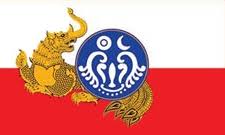
The Arakan National Party, is a political party in Myanmar (Burma), representing the interests of the Rakhine people in Rakhine State and Yangon Region. The party was founded on 13 January 2014 and registered with the Union Election Commission on 6 March 2014. The chairman of the ANP is Thar Htun Hla. The party is known for its hardline ethnic nationalist stance, as well as its Islamophobic and anti-Rohingya positions. Some members of the party were involved in instigating violence against Rohingya people during the communal riots in 2012, which left dozens dead and thousands homeless.

The National United Party of Arakan is a political organisation and insurgent group in Rakhine State, Myanmar. It was formed in 1994 as a merger between four nationalist groups, including a faction of the Communist Party of Arakan.
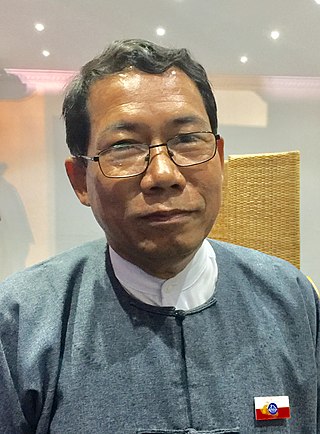
Aye Maung is a Burmese politician and was the chairperson of the Arakan National Party, one of Myanmar's ethnic political parties. He is currently the leader of the Arakan Front Party. He is a staunch nationalist known for his hardline stance against the Rohingya people, having tirelessly campaigned against the minority group and having been involved in instigating attacks against them in the communal violence in 2012.

The Arakan Rohingya Salvation Army (ARSA), formerly known as Harakah al-Yaqin, is a Rohingya insurgent group active in northern Rakhine State, Myanmar. According to a December 2016 report by the International Crisis Group, it is led by Ataullah abu Ammar Jununi, a Rohingya man who was born in Karachi, Pakistan, and grew up in Mecca, Saudi Arabia. Other members of its leadership include a committee of Rohingya émigrés in Saudi Arabia.

Violent clashes have been ongoing in the northern part of Myanmar's Rakhine State since October 2016. Insurgent attacks by the Arakan Rohingya Salvation Army (ARSA) have led to sectarian violence perpetrated by Myanmar's military and the local Buddhist population against predominantly Muslim Rohingya civilians. The conflict has sparked international outcry and was described as an ethnic cleansing by the United Nations High Commissioner for Human Rights. In August 2017, the situation worsened and hundreds of thousands of refugees fled Myanmar into Bangladesh, with an estimated 500,000 refugees having arrived by 27 September 2017. In January 2019, Arakan Army insurgents raided border police posts in Buthidaung Township, joining the conflict and beginning their military campaign in northern Rakhine State against the Burmese military.
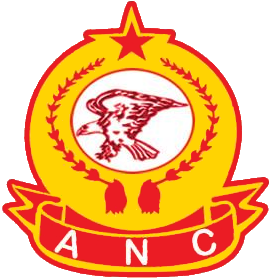
The Arakan National Council is an ethno-political organisation in Myanmar that campaigns for the interests of the Rakhine people. It was founded at a conference between Rakhine insurgent groups in-exile in 2004, and also has an armed wing in Kayin State, known as the Arakan Army.
The Communist Party of Arakan (CPA), also known as the Arakanese Communist Party (ACP), was a communist party and armed insurgent group active in Arakan, Burma. It was founded in 1962 after a faction under the leadership of Arakanese political leaders Kyaw Zan Rhee and Bo Maung Han broke away from the Red Flag Communist Party (RFCP).

The Arakan Front Party is a political party in Myanmar seeking Arakanese self-determination and holding hardline ultranationalist, anti-Rohingya and anti-Islam stances. It was founded on 11 October 2018 by Dr. Aye Maung, former chairman of the Arakan National Party, and his colleagues, including his son Tin Maung Win.
